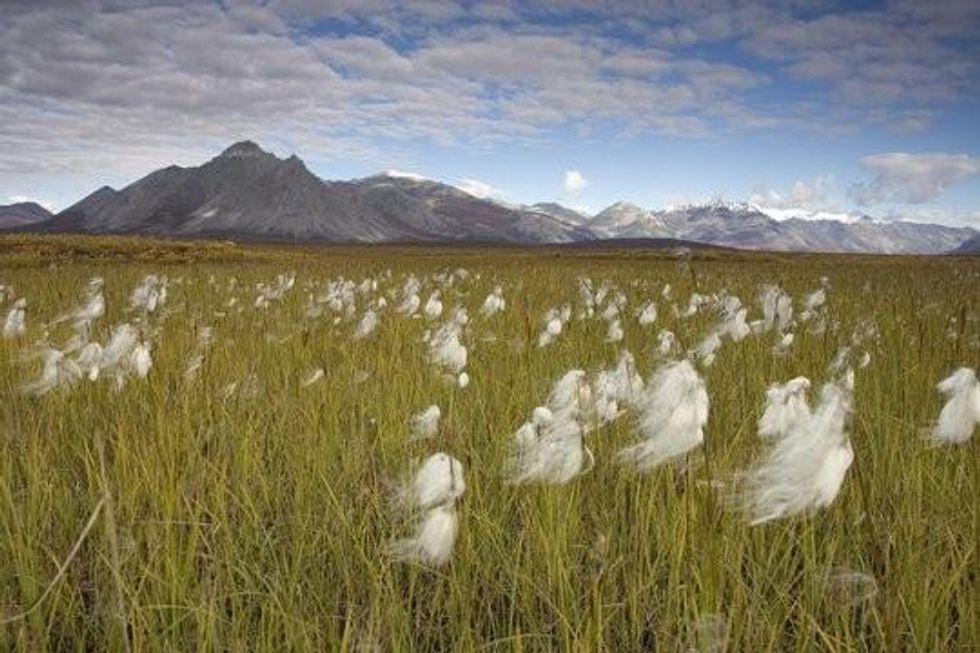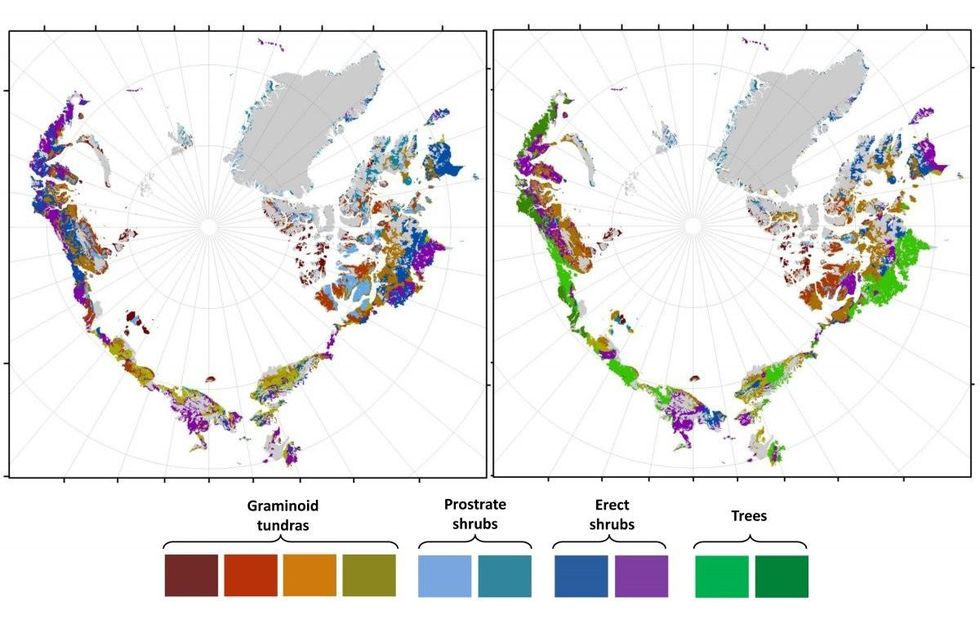

SUBSCRIBE TO OUR FREE NEWSLETTER
Daily news & progressive opinion—funded by the people, not the corporations—delivered straight to your inbox.
5
#000000
#FFFFFF
To donate by check, phone, or other method, see our More Ways to Give page.


Daily news & progressive opinion—funded by the people, not the corporations—delivered straight to your inbox.

In their study published Sunday in the journal Nature Climate Change, the team of scientists write that wooded areas in the Arctic could increase by 52% by the 2050s, and warming temperatures will shift vegetation zones further and further north.
"Such widespread redistribution of Arctic vegetation would have impacts that reverberate through the global ecosystem," Richard Pearson, lead author on the paper and a research scientist at the American Museum of Natural History's Center for Biodiversity and Conservation, said in a statement.
"These impacts would extend far beyond the Arctic region," Pearson stated. "For example, some species of birds seasonally migrate from lower latitudes and rely on finding particular polar habitats, such as open space for ground-nesting."
The Smithsonian's Surprising Science blog explains how the "greening" will create a vicious warming cycle:
Most troubling, the conversion of white, snow-covered land to dark vegetation will further affect the warming of the planet. Because darker colors absorb more radiation than the white of ice and snow, shifting large masses of land to a darker color is projected to further accelerate warming, creating a positive feedback loop: more warming leads to a greener Arctic, which leads to more warming.

___________________________
Dear Common Dreams reader, The U.S. is on a fast track to authoritarianism like nothing I've ever seen. Meanwhile, corporate news outlets are utterly capitulating to Trump, twisting their coverage to avoid drawing his ire while lining up to stuff cash in his pockets. That's why I believe that Common Dreams is doing the best and most consequential reporting that we've ever done. Our small but mighty team is a progressive reporting powerhouse, covering the news every day that the corporate media never will. Our mission has always been simple: To inform. To inspire. And to ignite change for the common good. Now here's the key piece that I want all our readers to understand: None of this would be possible without your financial support. That's not just some fundraising cliche. It's the absolute and literal truth. We don't accept corporate advertising and never will. We don't have a paywall because we don't think people should be blocked from critical news based on their ability to pay. Everything we do is funded by the donations of readers like you. Will you donate now to help power the nonprofit, independent reporting of Common Dreams? Thank you for being a vital member of our community. Together, we can keep independent journalism alive when it’s needed most. - Craig Brown, Co-founder |

In their study published Sunday in the journal Nature Climate Change, the team of scientists write that wooded areas in the Arctic could increase by 52% by the 2050s, and warming temperatures will shift vegetation zones further and further north.
"Such widespread redistribution of Arctic vegetation would have impacts that reverberate through the global ecosystem," Richard Pearson, lead author on the paper and a research scientist at the American Museum of Natural History's Center for Biodiversity and Conservation, said in a statement.
"These impacts would extend far beyond the Arctic region," Pearson stated. "For example, some species of birds seasonally migrate from lower latitudes and rely on finding particular polar habitats, such as open space for ground-nesting."
The Smithsonian's Surprising Science blog explains how the "greening" will create a vicious warming cycle:
Most troubling, the conversion of white, snow-covered land to dark vegetation will further affect the warming of the planet. Because darker colors absorb more radiation than the white of ice and snow, shifting large masses of land to a darker color is projected to further accelerate warming, creating a positive feedback loop: more warming leads to a greener Arctic, which leads to more warming.

___________________________

In their study published Sunday in the journal Nature Climate Change, the team of scientists write that wooded areas in the Arctic could increase by 52% by the 2050s, and warming temperatures will shift vegetation zones further and further north.
"Such widespread redistribution of Arctic vegetation would have impacts that reverberate through the global ecosystem," Richard Pearson, lead author on the paper and a research scientist at the American Museum of Natural History's Center for Biodiversity and Conservation, said in a statement.
"These impacts would extend far beyond the Arctic region," Pearson stated. "For example, some species of birds seasonally migrate from lower latitudes and rely on finding particular polar habitats, such as open space for ground-nesting."
The Smithsonian's Surprising Science blog explains how the "greening" will create a vicious warming cycle:
Most troubling, the conversion of white, snow-covered land to dark vegetation will further affect the warming of the planet. Because darker colors absorb more radiation than the white of ice and snow, shifting large masses of land to a darker color is projected to further accelerate warming, creating a positive feedback loop: more warming leads to a greener Arctic, which leads to more warming.

___________________________